O’Mari under new rule, handmade pasta in all shapes, flavours, and colours.
About a year ago (or more precisely, November 2015), Chin Ning bought O’Mari from Daniel (the previous owner, who we first started working with for fresh pasta on the Marketplace). Since Chin took over the wheel at O’Mari, a lot has changed. We now carry Asian specialty pastas like fresh Ramen and Soba noodles, as well as some vegan pasta options. We’d like to officially introduce you to Chin and new O’Mari...
From biochemistry to pasta-making
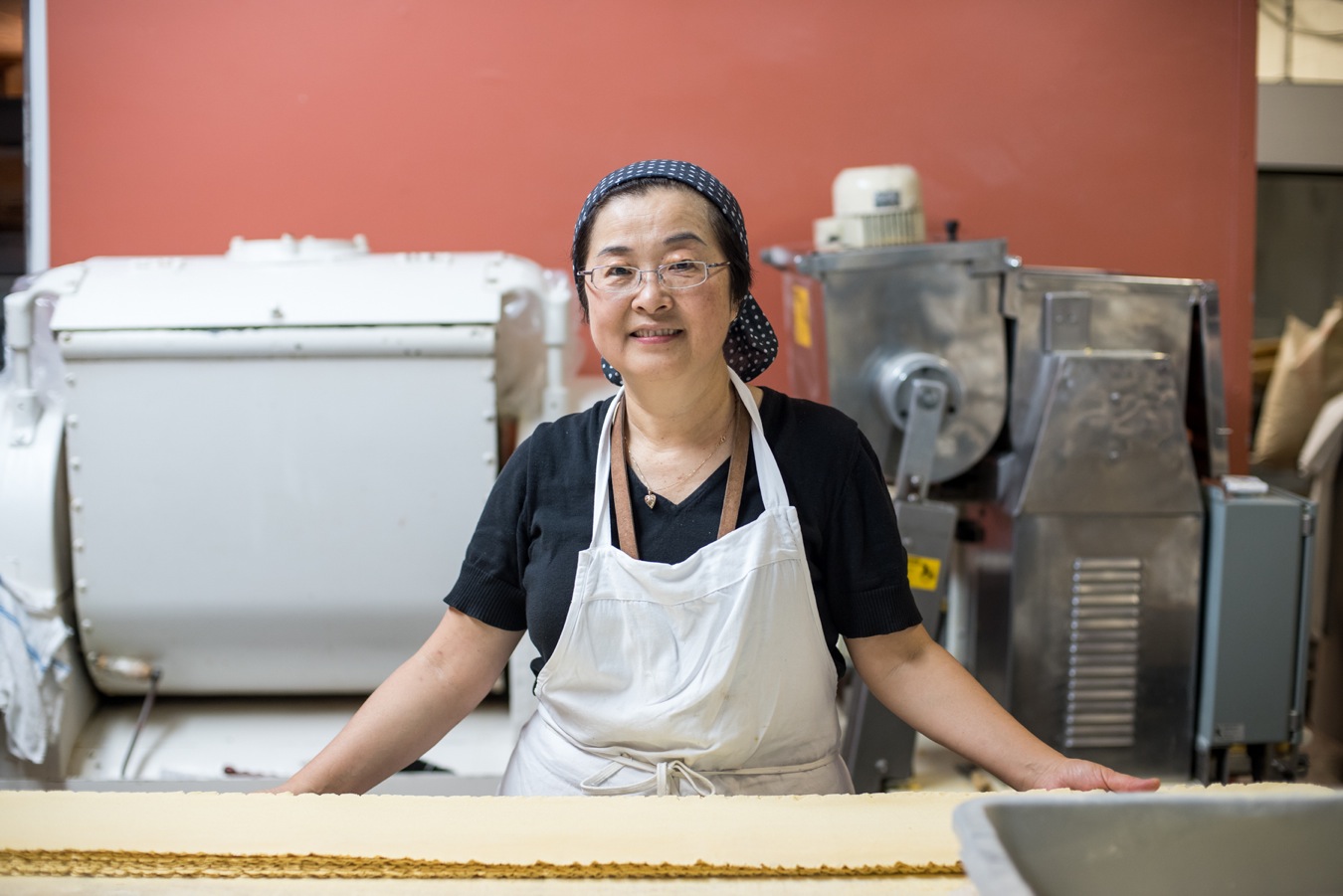
Originally from Taiwan, Chin came to Montreal in 1976. A true entrepreneur at heart, she studied biochemistry, but only worked in this field for a year and then spent most of her time in property management. Finally, after years in real estate, she started searching for a new venture and came across O’Mari’s for-sale sign. “My kids always told me that the only thing I cook well is pasta,” she said with a big smile on her face (and a cloud of flour dust in the air).
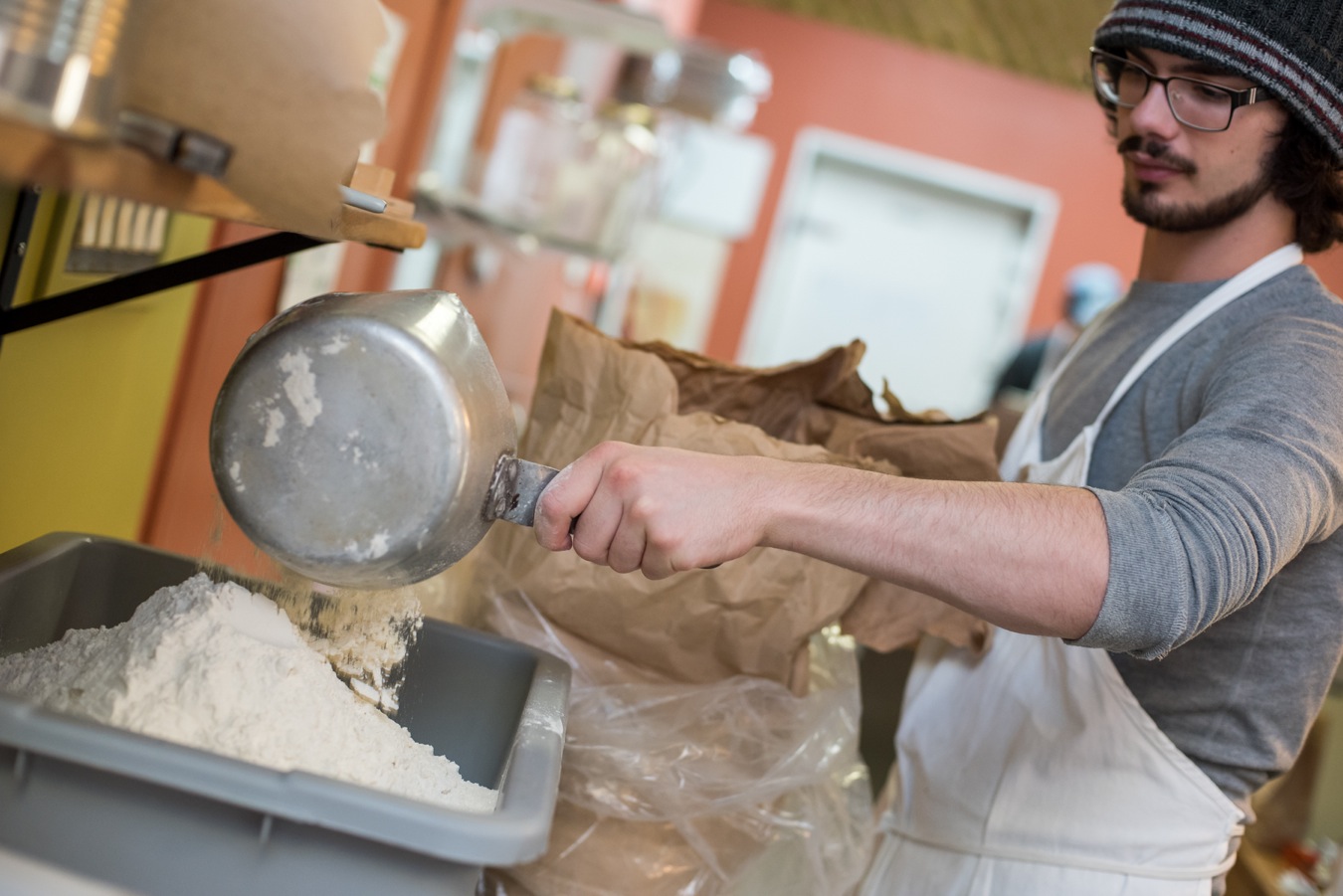
She knew she’s no pro at authentic Italian, so she decided to experiment with new flavours and textures instead. As an experienced entrepreneur, she put together her A-team to get to work making pasta: Nathan, Paul, and David, the masters of operating O’Mari’s pasta machines that require careful calibration, love and care.
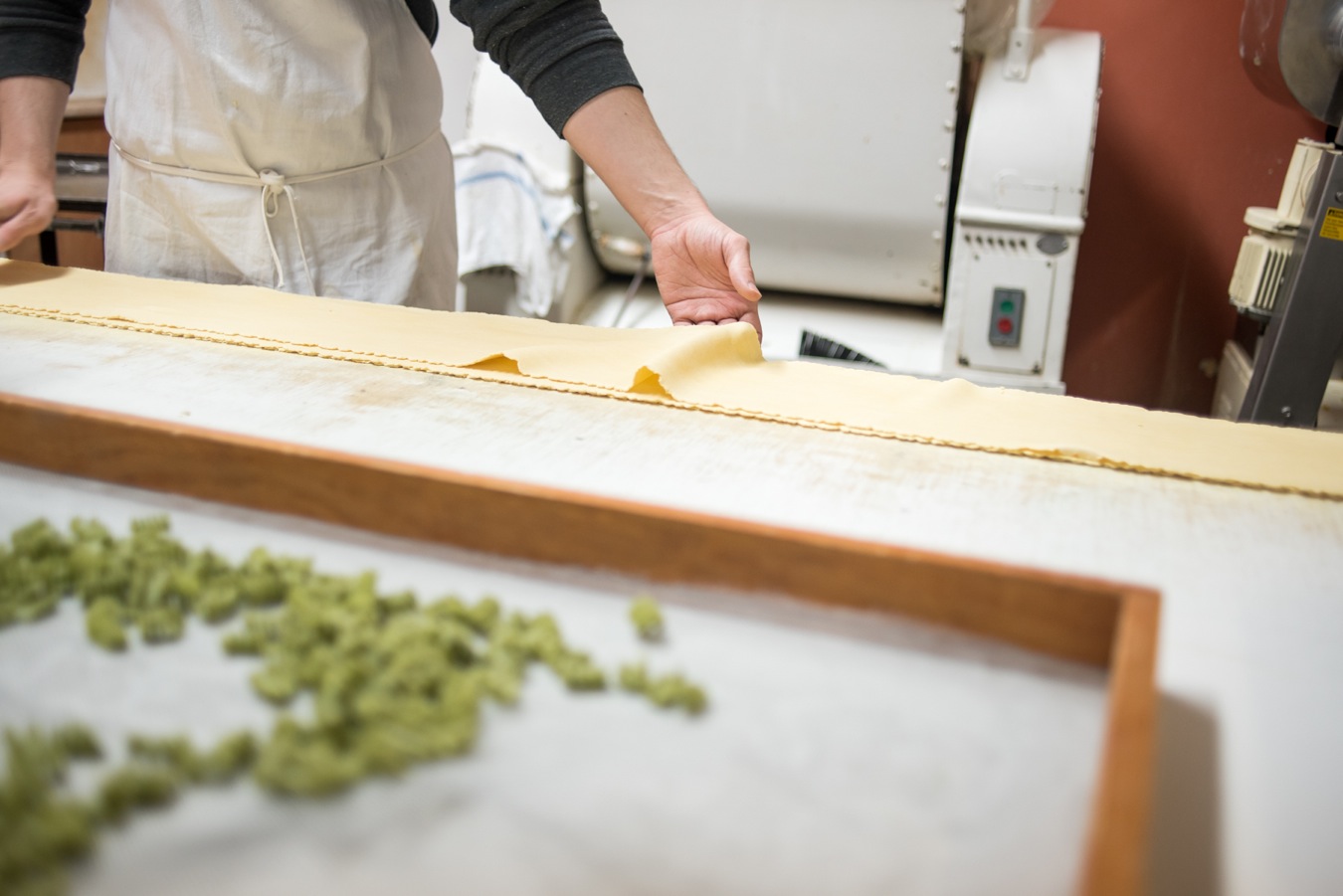
.jpg)
O’Mari’s story
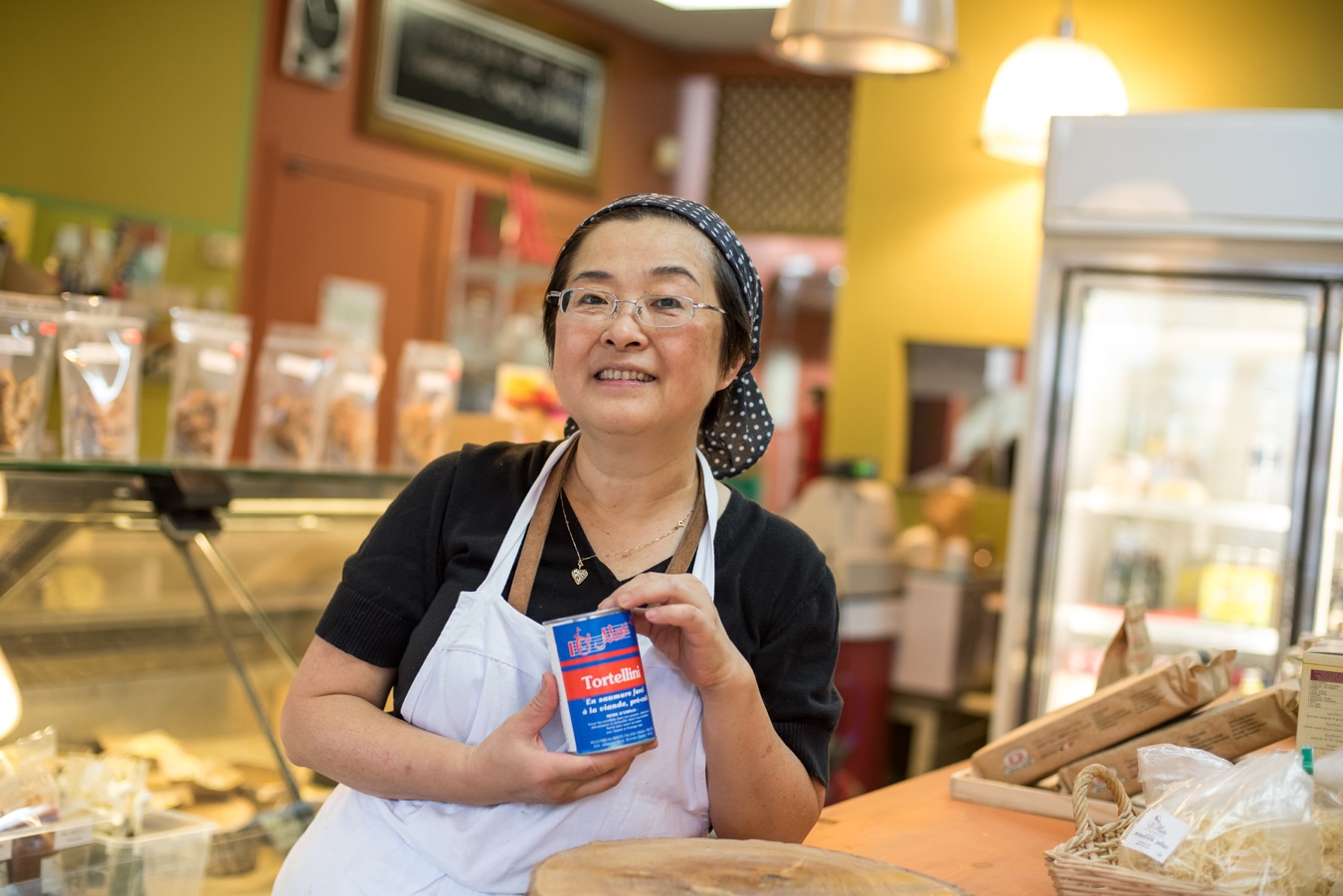
The O’Mari shop in Ville-Émard has a history dating back to the ‘80s, when the place sold authentic Italian pasta sauces in cans with vintage labels. Chef Daniel kept up the Italian traditions by introducing fresh pasta production to the shop, much to the enjoyment of quartier residents. And according to Chin, really took O’Mari to the next level. Unlike Daniel, a chef with years of experience, Chin developed interest in culinary sciences when she was exposed to Italian traditions early on in her life. “When I was 14, I stayed with an Italian family in Malta for a year. Every Sunday, they got together and made pasta. My job was to get ingredients from a small store across a street and enjoy dinner with that family. It was ritualistic and I loved it,” Chin smiled. With a soft spot for Italian culture, she didn’t have any doubt about buying O’Mari.
O’Mari’s flavours
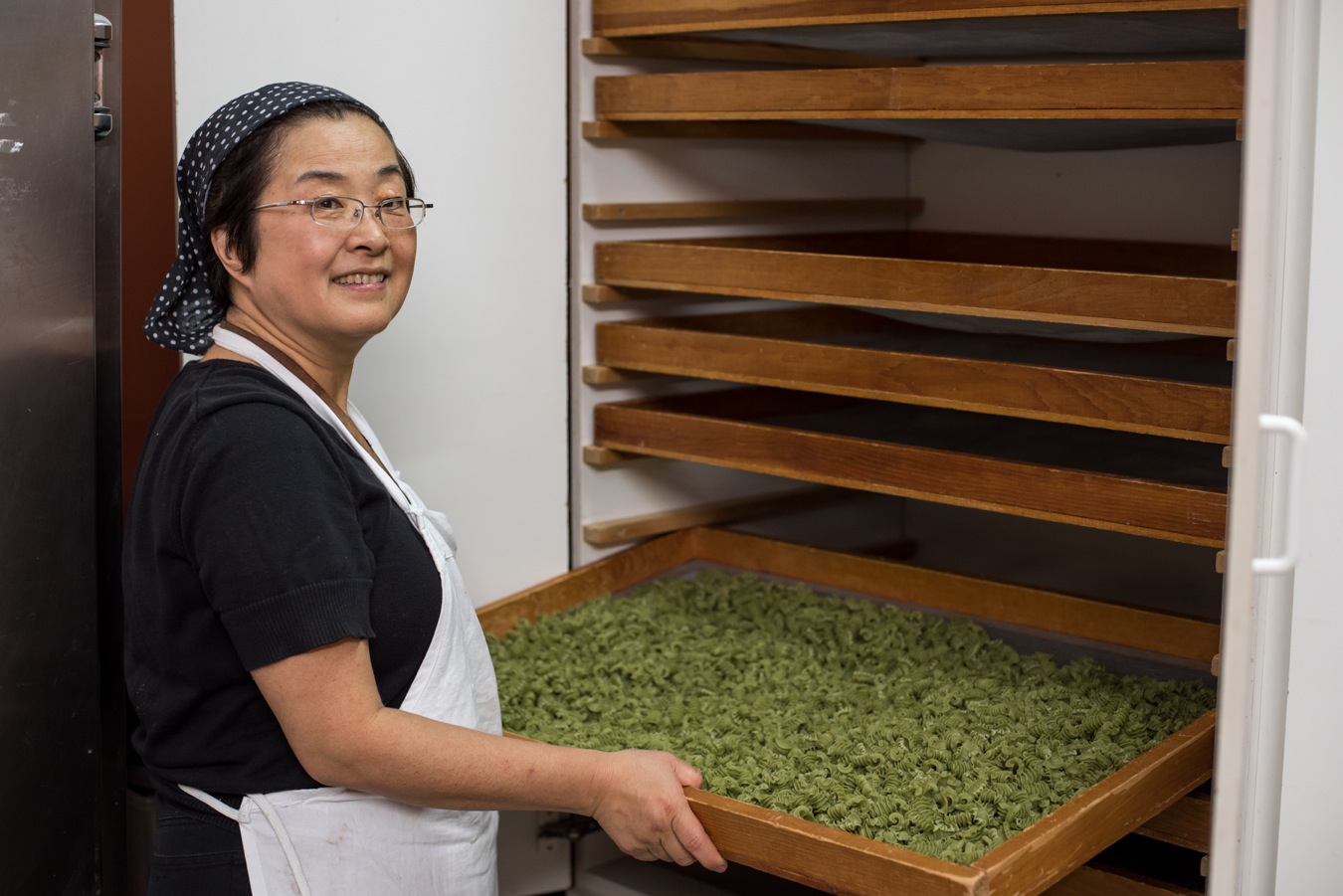
From day one, Chin’s goal was about more variety and creating vegan options. Turns out, pasta without egg doesn’t always pass the test of drying and freezing. So far, Chin has succeeded in making vegan buckwheat and spelt fusilli options. Instead of blending in, Chin embraced her roots with other varieties and started making Ramen and Soba noodles too. Another new type of pasta is kelp radiatori.
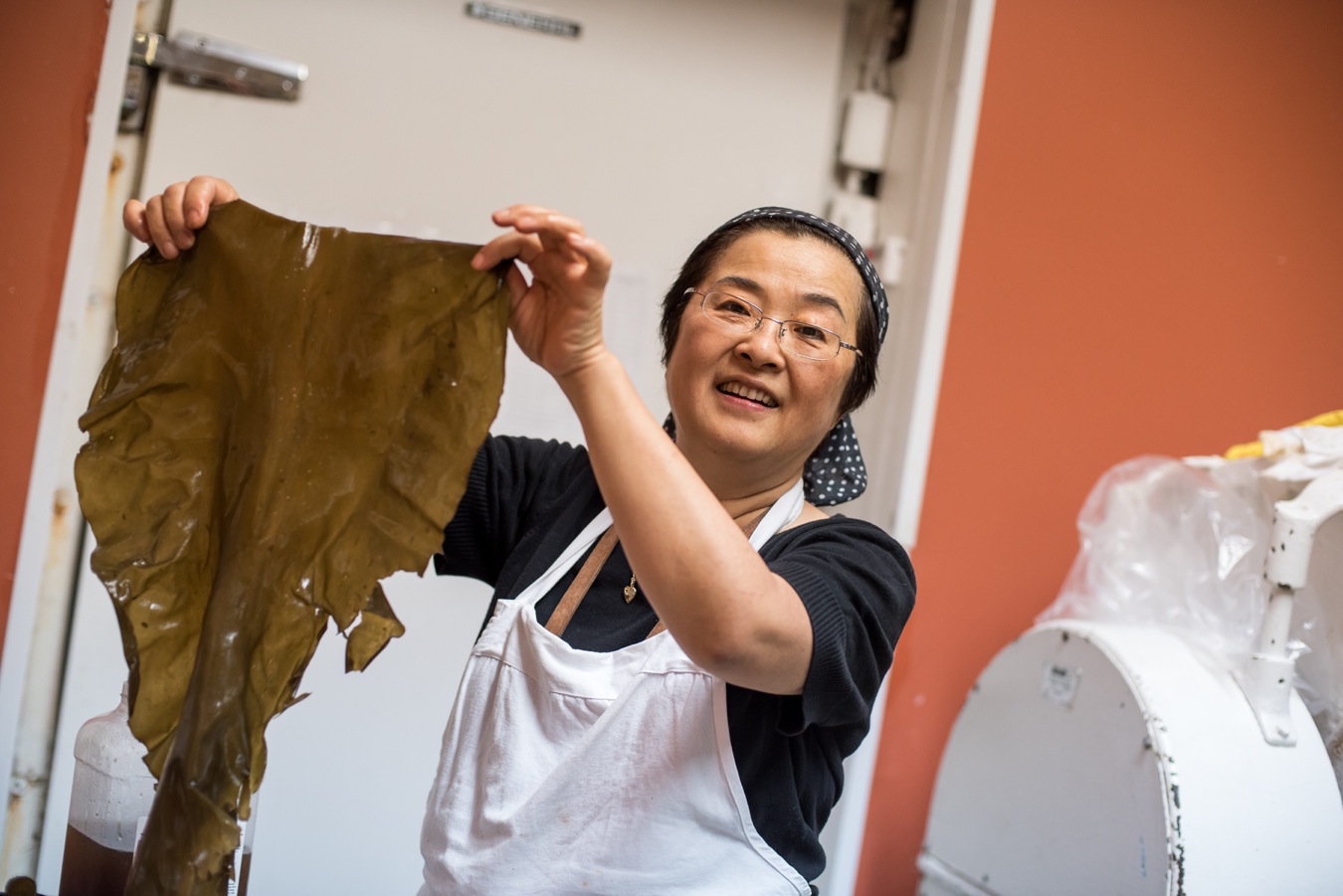
Very popular in Asian cuisine (but never used for pasta making), kelp has a strong salty flavour. “It’s like a natural taste enhancer so I thought why not try adding it to pasta,” said Chin while showing us a big jar of kelp.
The process of fresh pasta making
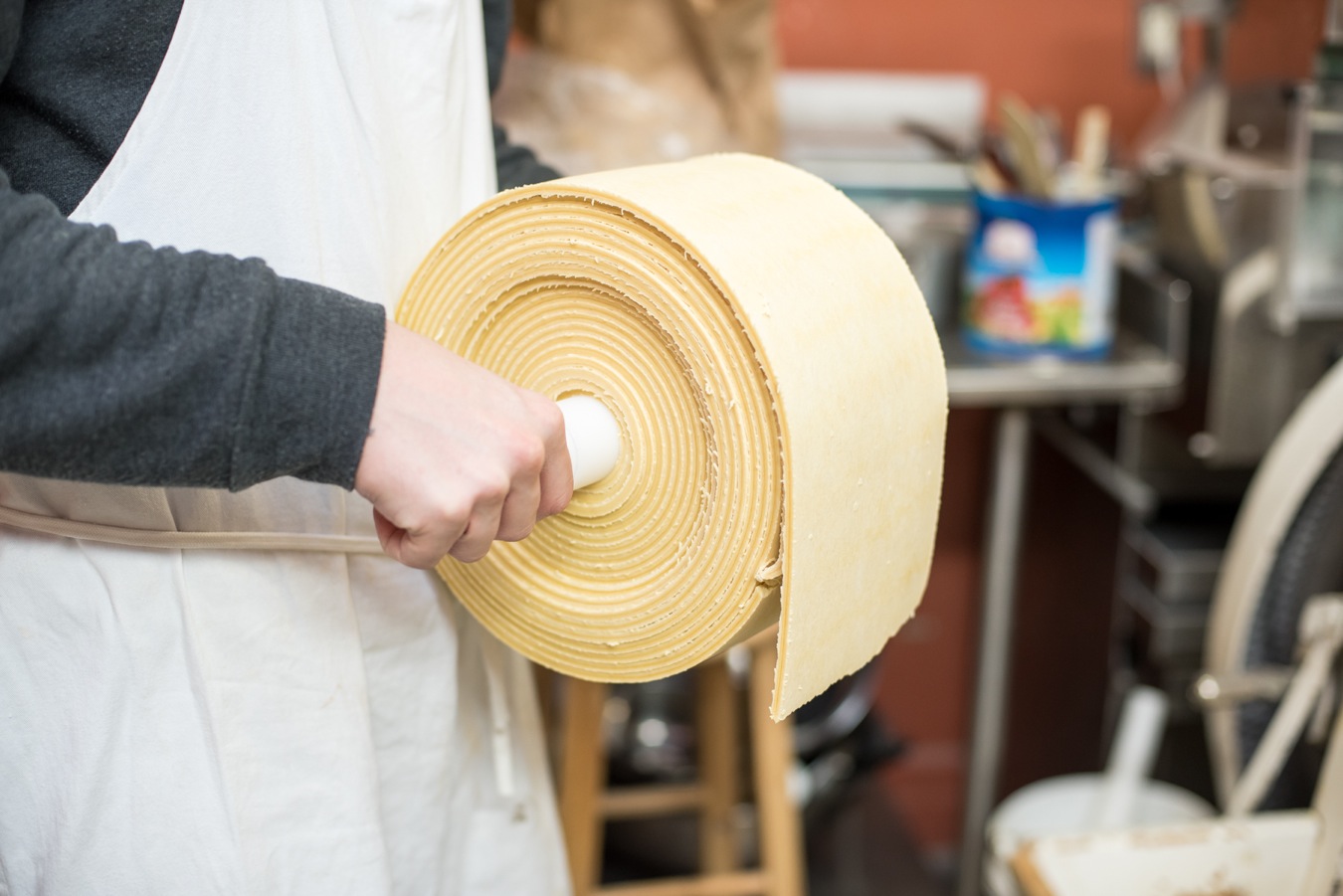
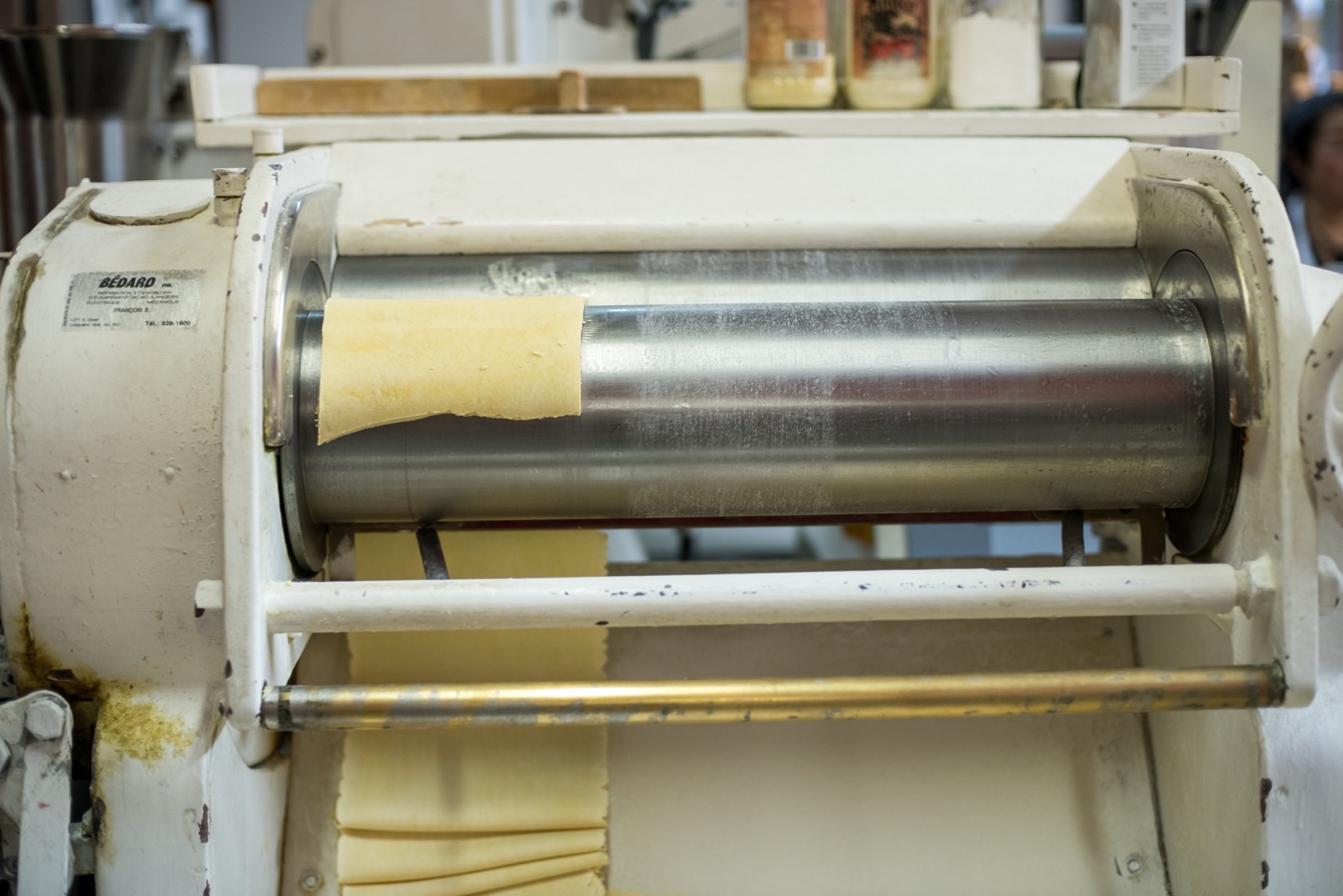
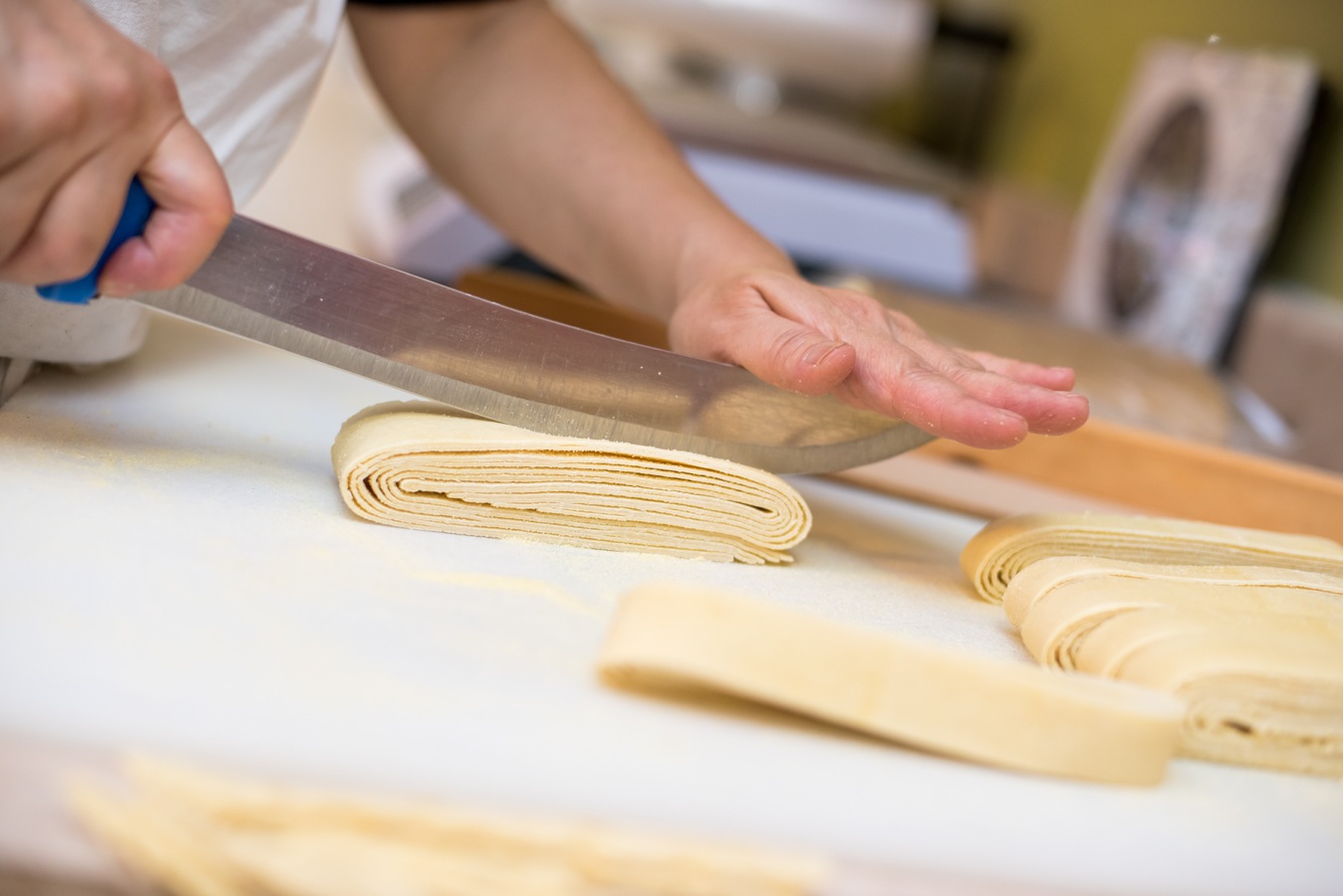
O’Mari is a tiny and cozy store with a few old-fashioned ravioli and tortellini machines, an old school pasta sheeter (which creates the foundation for most of their pastas), and an extruder, the bad boy that cuts pasta dough into cool shapes like radiatori. Due to lack of space, only a few machines run at a time, so the team rotates the machines and often works late. On a typical day, you’ll find Chin experimenting with new colorful pasta and sauce flavours in between making, drying, freezing, and packing a rainbow of fresh pasta varieties.
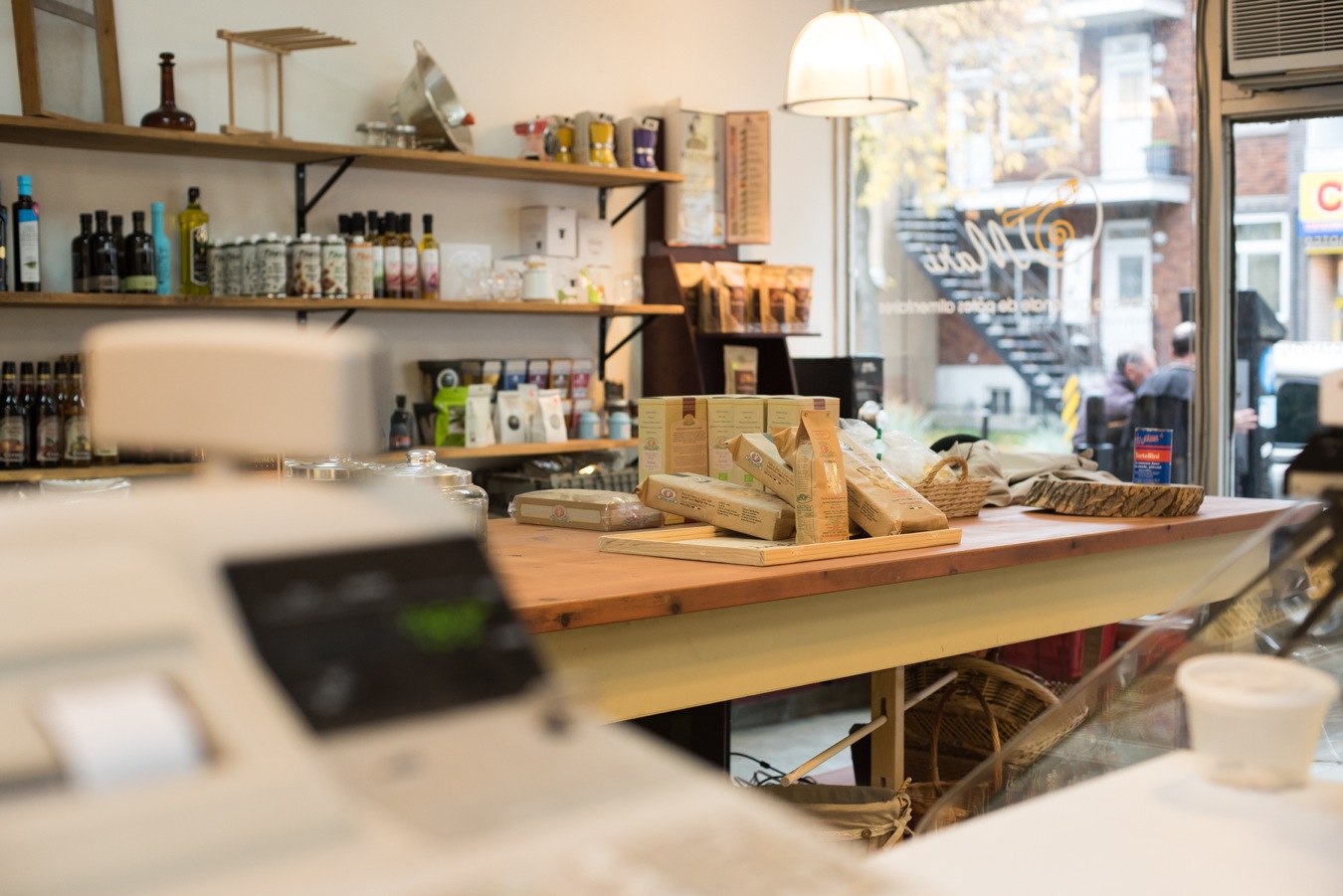
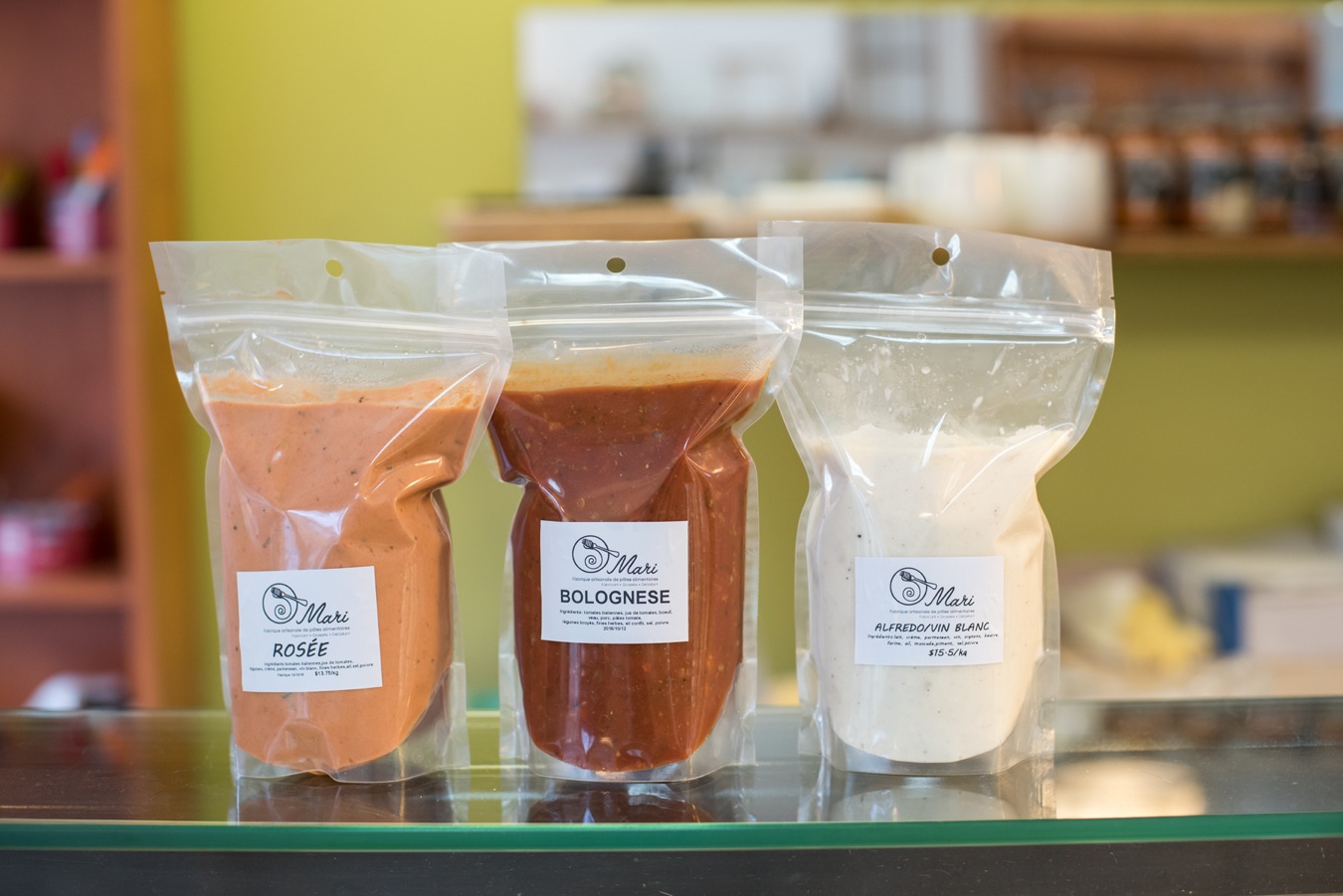
Chin has big plans for O’Mari, but she has only been running the store for a year. For the moment, she’s preoccupied with better packaging and labelling, but her ultimate goal is to offer Lufavores handmade ravioli with chunkier stuffings, homemade lasagnas, and pasta sauces that’ll perfectly match her pastas. Until then, Chin suggests a drizzle of olive oil and some shaved Parmesan as a simple complement to any O’Mari pasta.
Happy eating!
